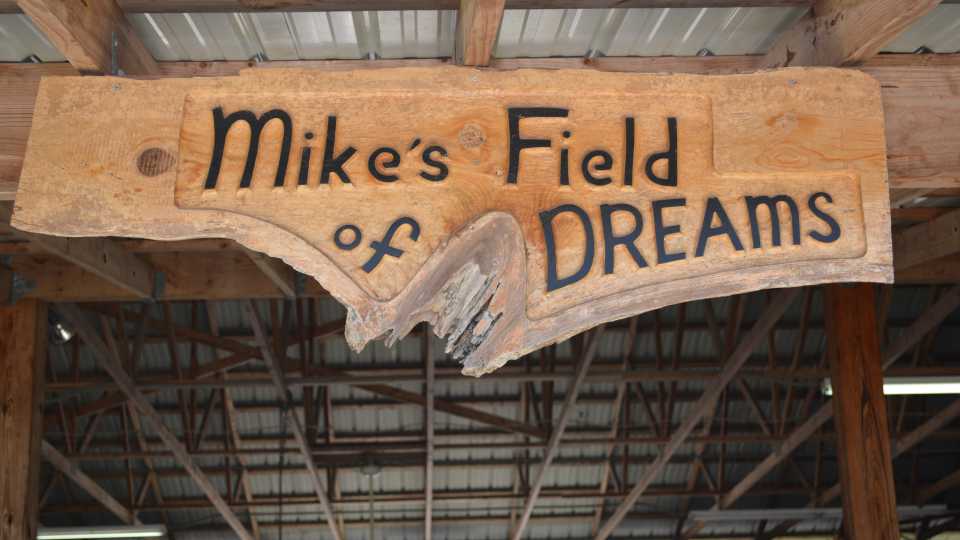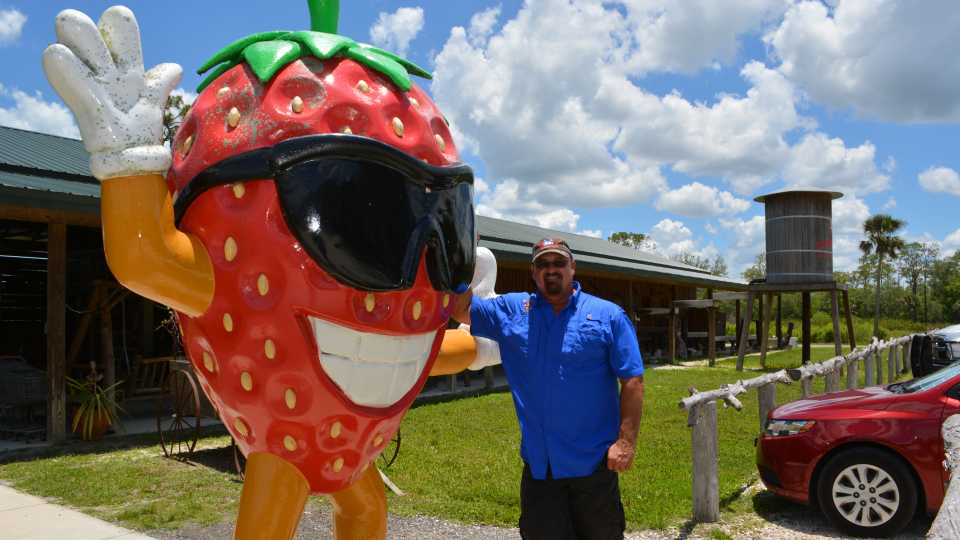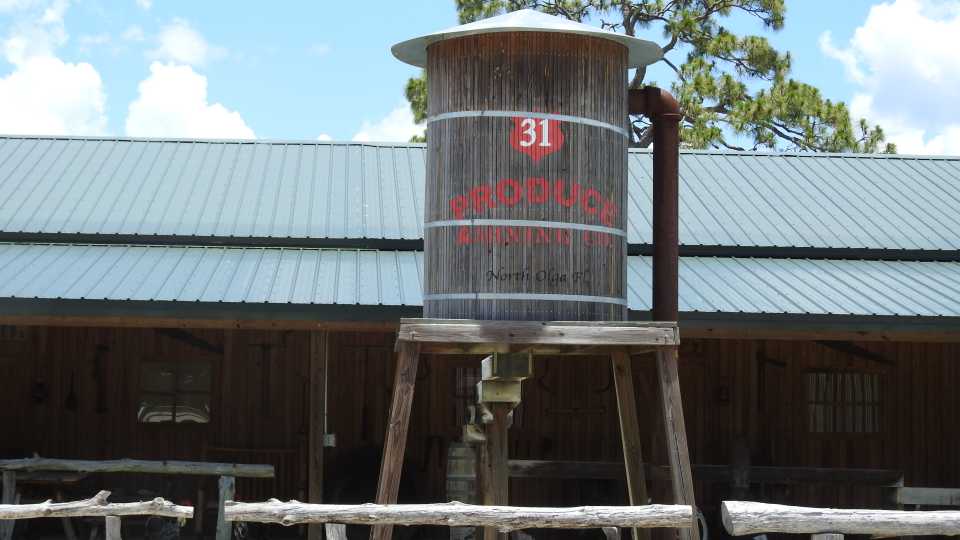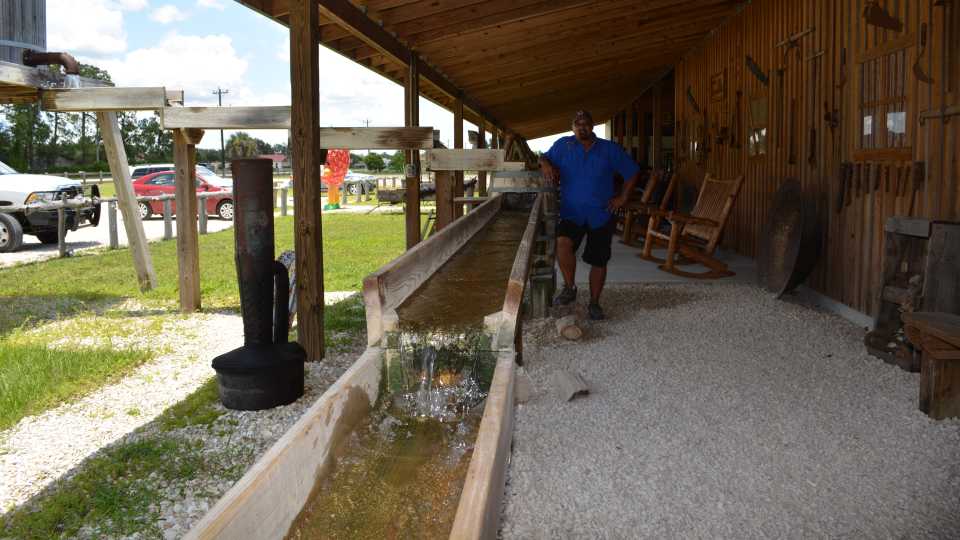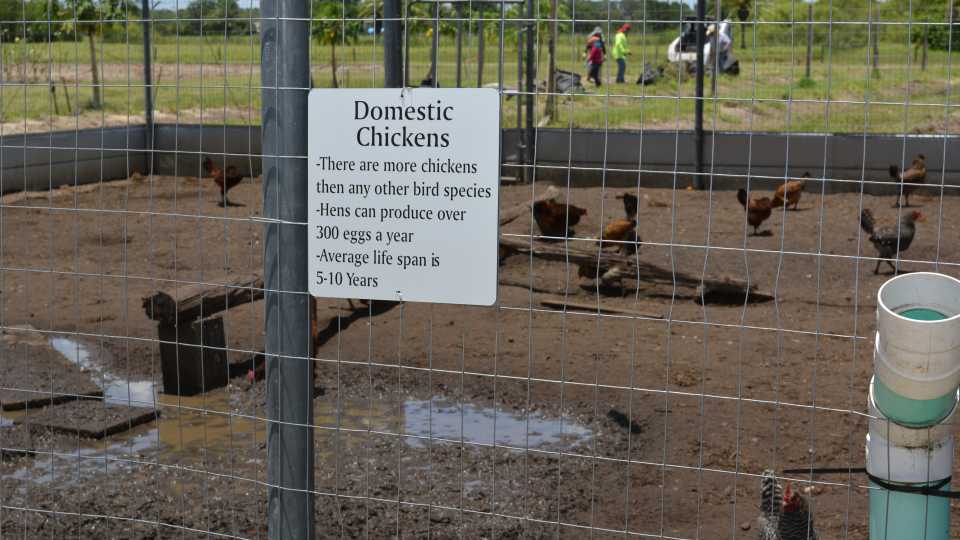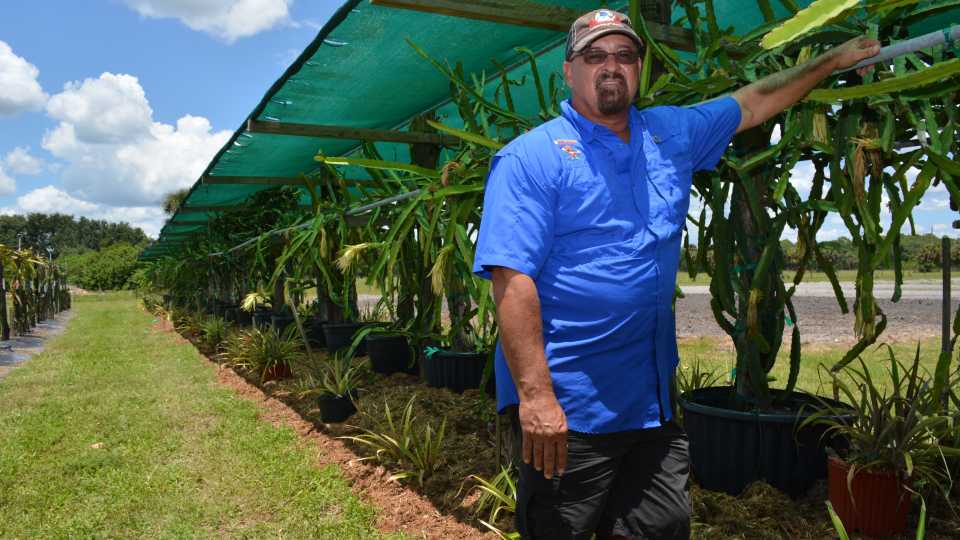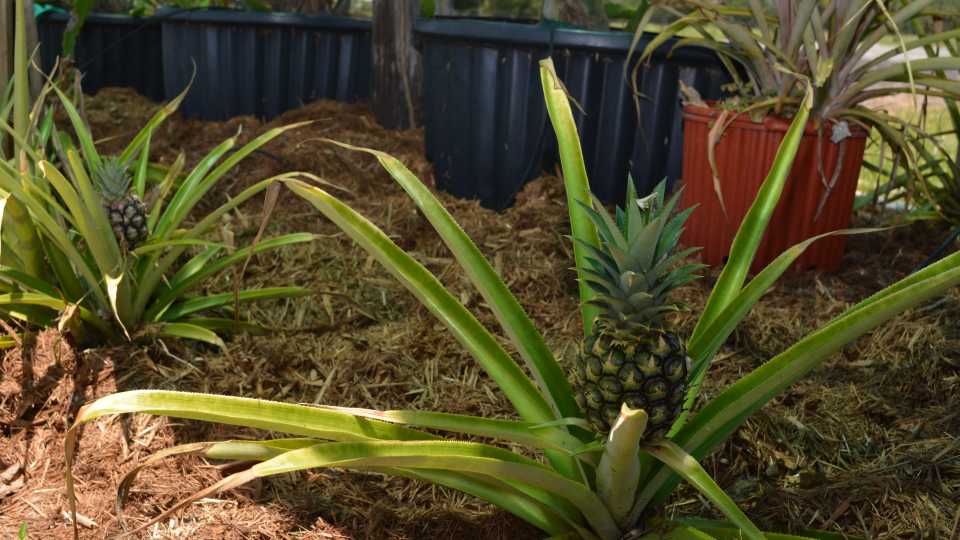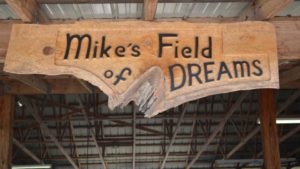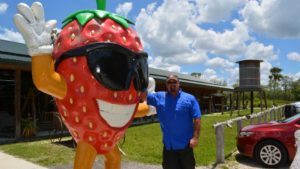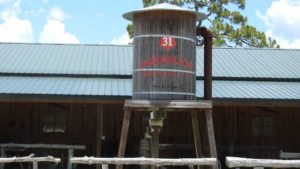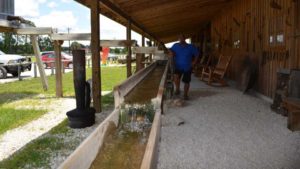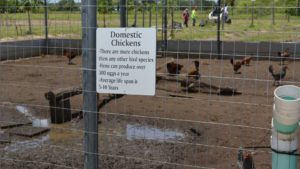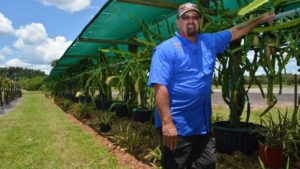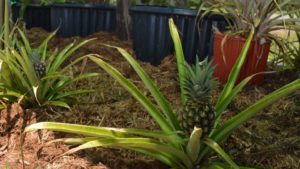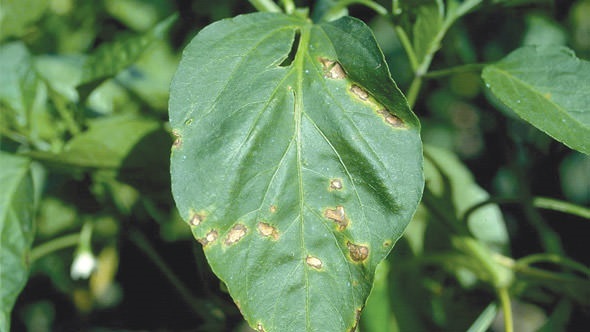Former MLB Slugger Finds Field Of Dreams In Farming
[blackoutgallery id=”131767″]
Many a passerby have seen the giant strawberry sporting arms, legs, sunglasses, and a smile along Highway 31 near Ft. Myers. The strawberry is waving and beckoning customers to stop in at 31 Produce, a farm owned and operated by Mike Greenwell and his wife Tracy since 2009. Greenwell’s path to farming included 16-year career in Major League Baseball with the Boston Red Sox. The Floridian played left field for the team, is a member of Red Sox Hall of Fame, and still holds a number of MLB records.
Playing in the big leagues was a pressure-filled job, so for an escape, Greenwell planted a garden at his home in New England.
“When we had our house there, we always kept a garden in the back yard,” Greenwell says. “It was sort of a peace of mind thing to get away from the pressure of playing a top-level sport. It was just something we enjoyed doing.”
After Greenwell retired from baseball and moved back to Florida, his wife saw a TV show on the amount of unregulated chemicals applied to food grown in other countries. After seeing the show, she said it was time to grow a garden of their own food.
“So, in 2006, I put in a 1-acre garden on our property,” Greenwell says. “That makes a lot of produce, and it was way too big for just us. We decided it would be fun to put up a tent by Highway 31 right where we were growing the garden and sell produce on the weekends. By the third weekend, we were completely selling out of what we had to offer.”
Greenwell says the farm just “snowballed” from there as more acres were planted, buildings erected, and attractions added.
“We didn’t have any idea the farm would have grown into what it has, nor was it our intention when we planted that first acre,” he says. “We just enjoyed doing it and I enjoyed the farming part of it. We kept adding on new products and growing a heck of a lot more than when we started.”
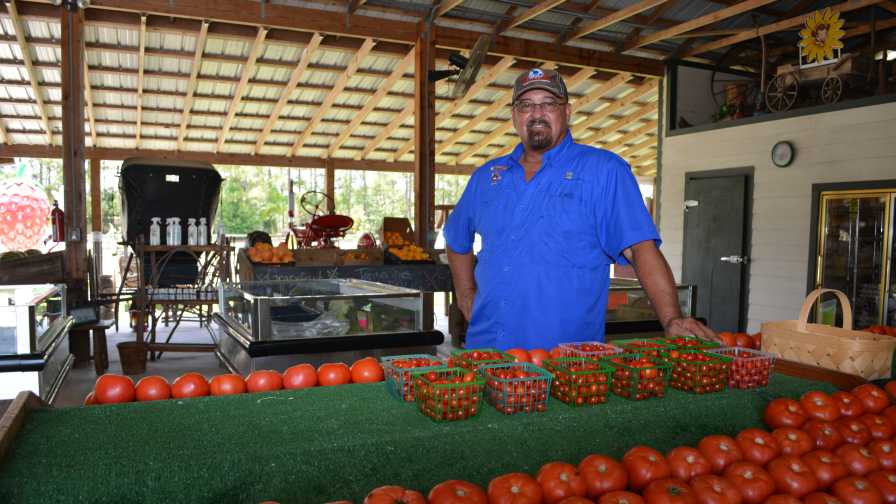
Former Major League Baseball slugger Mike Greenwell is hitting home runs with a home-grown approach at 31 Produce in Ft. Myers.
Community First
One of the guiding principles as the farm grew was to serve the community first. That focus has built a local and loyal base of customers.
“It was very important that if we were going to do this, we were going to serve the local people,” Greenwell says. “Not being critical, but many of the produce stands you see around here are open strictly for the tourist season. When the tourists go home, they are gone. We wanted to build a place where people could bring their families year-round.”
The farm hosts school tours almost daily during the main growing season. Schools from Collier, Lee, and Charlotte counties visit the farm. Greenwell estimates that more than 15,000 kids toured the farm this year.
“The experience for these kids to be on a farm and being able to pick fresh produce and see the animals is a great teaching tool,” he says. “We explain to them how we grow crops, how our drip irrigation system works, and what is sprayed on the crops to protect them from pests. The kids and teachers love it.”
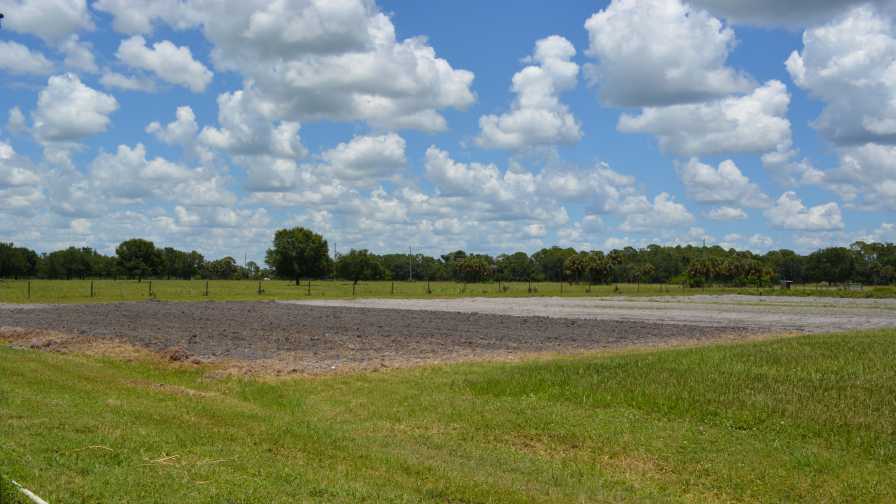
Land is being cleared for a U-Pick dwarf mulberry planting to extend the crop season on the farm.
Growing And Diversity
From the 1-acre patch, Greenwell has grown the farm to 15 acres to meet the demand of U-Pick or retail customers. He built a storefront building for more convenience and comfort for customers to shop in.
“We grow 28 different varieties of crops here,” Greenwell says. “You name it, we pretty much grow it. We plant in 3-acre plots about five times per season to stagger out the harvest. Strawberries still are our most popular item by far. We start picking those in November and it goes through to the end of April.”
Greenwell adds that greens have become a very popular item with customers. He grows collards, turnips, mustard, and kale.
How did Greenwell learn to grow successfully? He says he has been around gardening his whole life, so a lot of it focused on learning by doing.
“I grew up poor,” he says. “We had a large family of seven. My dad always had a garden of some sort and we did a lot of hunting and fishing. So, a lot of what we ate growing up we grew, caught, or killed.
“You learn how to farm by doing it, observing others, asking questions about why this or that worked or didn’t. By the time we evolved into this business, I had a pretty good knowledge of how to grow. Having the background in baseball, I also am very competitive by nature, so I don’t like to fail. That carries over into farming.”
Greenwell does not use restricted-use pesticides on his farm. He uses softer chemistries to manage pests and diseases because that was the inspiration to plant the original 1-acre garden. He uses conventional liquid fertilizer through his drip irrigation because of concerns over the use of manure and potential for foodborne illness.
“If I can’t control a problem with a non-restricted material, then I just lose the crop. If I were growing just a couple of crops, it would be easier to attack maybe one or two problems. Here, I might be looking at 28 different problems and obviously I can’t attack them all.
“But, because we grow so many different things, problems generally occur in a couple of different crops or spots. It is not a total failure across the farm. That points out the importance of having a diversity of crops to spread risks.”
One of Greenwell’s biggest challenges is extending his season deeper into the summer months after it is too hot for most fruits and vegetables to grow. To do this, he is planting blackberries and dwarf mulberries for U-Pick and in-store sales.
“We now have 12 employees on the farm and it is difficult keeping them all busy after things slow down in early May,” he says. “The blackberries should extend the season into June because of when they mature. At the same time, we are putting the mulberries in as a hedge against the blackberries if they do not do well. We know the mulberries will do well.”
Beyond diversity of crops, Greenwell has added agritourism options to draw families to the farm. The farm is home to a wide array of animals, including tortoises to tortoises, Guinea pigs, rabbits, miniature donkeys, baby doll sheep, miniature goats, and chickens. The chickens lay eggs, which are a popular item with customers. The retail store also sells grass-fed beef, buffalo, and wild pork, which is raised just up the road from the farm. Other attractions include hayrides and a mining run for kids to prospect various treasures from. The store also sells various local goods like jams, jellies, spices, crafts, and a full-service restaurant.
“I just love sitting in the store and restaurant and observing people and how they experience the place,” Greenwell says. “It is a totally different atmosphere than a regular store. You don’t see the hustle and bustle of a store. People move more slowly, take it in, and enjoy it.”
Getting The Word Out
Greenwell says in today’s world, hosting a website for the farm and having a Facebook page is a must. He says his wife manages the online presence and is sometimes almost overwhelmed with the amount of inquiries received by interested customers.
“Last season for the first time, we cut our first TV commercial,” he says. “We wanted people to see what we do and the TV did that. We saw a big uptick in business from it. We have done radio and a little bit of everything, but the TV spot was new and fun to do.”
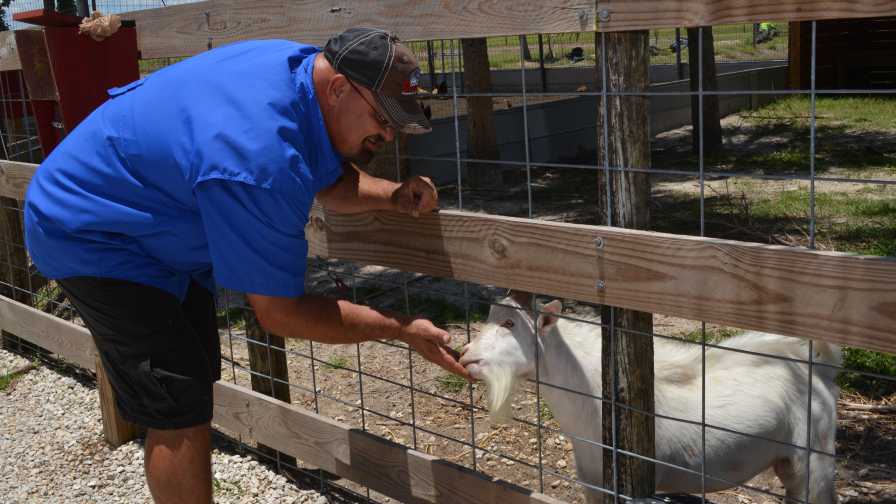
Miniature goats and other animals are a big draw to customers of 31 Produce.
Photo by Frank Giles
Agritourism Law Protects And Promotes Small Farms
In 2013, the Florida Legislature passed the “Agritourism Bill.” The new law, which was just recently updated and clarified, was designed to ensure farm operators were not restricted from activities on their property by local governments, and it provided protections from certain liabilities when people are on the farms. According to Greenwell, the law was a big win for his farm business and others like it.
“The law has allowed us to diversify our farm and it has been hugely important to us,” he says. “When the law was passed, it really gave me incentive to grow and expand our business in every angle we can. It allows us to offer our customers more reasons to come here.
“Secondly, the law gives you some peace of mind over inviting people onto your property when it comes potential liability and lawsuits. The law shields you from some of that.”
Florida Agriculture Commissioner Adam Putnam supported the law and says it was an important move to promote and protect farms that seek to engage the community.
“In some cases, local governments were limiting what agritourism activities could take place and even attempting to change land classification and increase property taxes if farms or ranches provided agritourism activities to their communities,” Putnam says. “This law prevents this and creates a pro-agritourism climate in Florida.”





